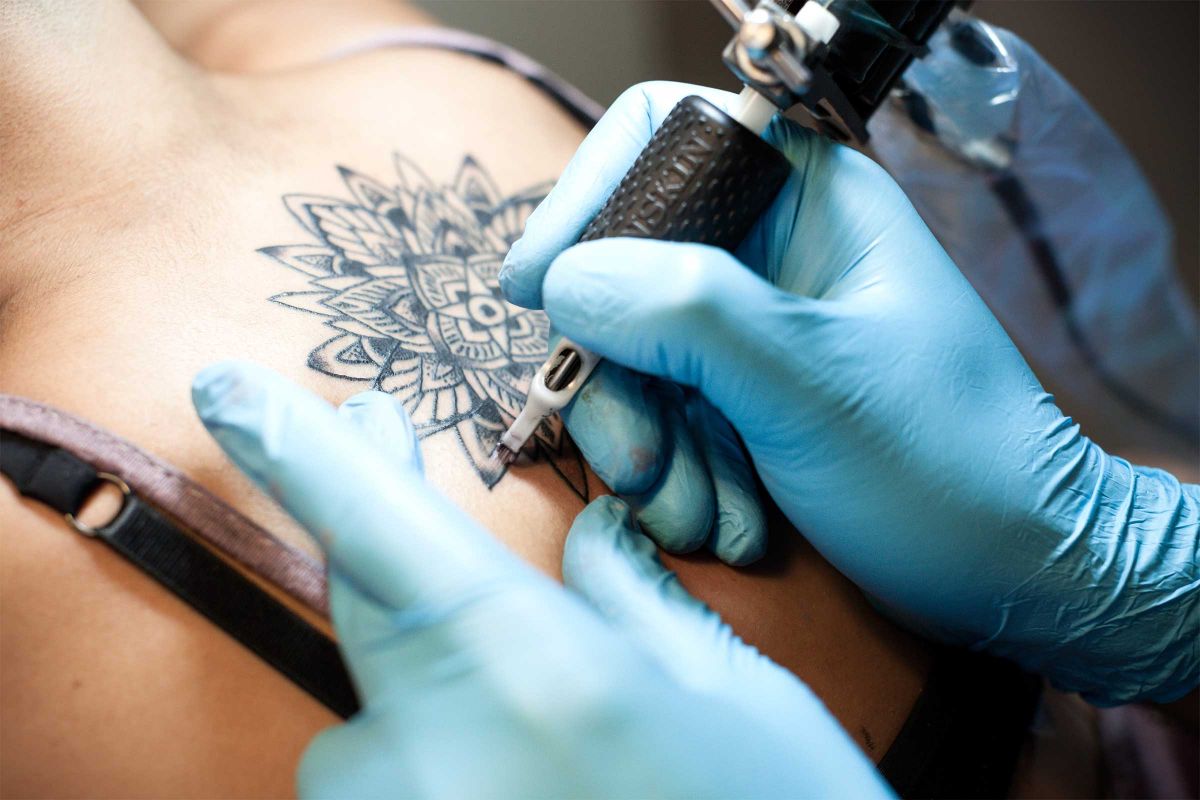
Well, you know that it will hurt, right? good. But there are some other, not all known effects of tattooing. According to the Contact Dermatitis magazine, 10% of people after the procedure experience itching, swelling and slow healing of the damaged skin area. And in 6% of this process is stretched by as much as four months or more. And although it is impossible to predict the reaction, the following facts will help you make a more balanced decision, as well as avoid unpleasant consequences.
Your skin may be distorted.
Diseases of the skin, such as psoriasis and eczema, can lead to serious problems. Patients with psoriasis are at risk for Kenner's phenomenon: when the disease on the injured areas of the skin increases. And patients with eczema have a risk of an allergic reaction to the ink. Of course, all skin diseases can damage the picture.
Some medicines increase the risk of infection.
Tattooing increases the risk of infection, so people with reduced immunity need to be especially careful. Including those taking immunosuppressive drugs (for example, in the treatment of cancer, rheumatoid arthritis, multiple sclerosis or Crohn's disease). It is also better to discuss the tattoo with a doctor if you are taking blood thinners or acne medications.
Tattoos do not like the sun
Newly tattooed skin areas are extremely sensitive to sunlight. According to the American Academy of Dermatology, ultraviolet light can react with the ink and cause a sunburn effect (especially if the tattoo contains yellow or red ink). If you want a beautiful color tattoo, choose an area that is rarely exposed to the sun or that is easy to apply sunscreen. In addition, you should avoid areas with many moles: with a tattoo, it will be more difficult for you to track their condition in order to reveal melanoma at an early stage. At least tell the master not to paint them - let him go around the machine. Yes, it can be to the detriment of the drawing, but health is more important.
You only need sterilized needles.
Let the tattoo artist open the package with the sterilized needle in front of your eyes. You know that serious diseases such as hepatitis and HIV are transmitted through dirty needles. The establishment can be considered suitable if you can easily ask a bunch of questions and get normal answers to them. For example, ask how they handle reusable tools. To do this, the self-respecting institution has an autoclave. The tattoo master must also use disposable gloves and change them every time he takes on something other than your skin.
Tattooing is a medical procedure.
You do not go to a dental or a dermatologist drunk, and that’s why you shouldn’t go to a tattoo master. Alcohol slows down healing, blood clotting and affects your ability to sit still. Tattoo masters advise to sleep well before the procedure, drink water and eat for an hour.
Shaving is a bad idea
Before applying the tattoo, the skin is always shaved - delegate it to the tattoo master. It is hardly customary for you to carefully shave your leg, arm, chest, or wherever you decide to make a tattoo - which means that there are great chances of cutting yourself in an awkward movement. In this case, tattooing will have to be postponed until the wound is completely healed.
Care after the application is essential.
Ask a question about how to care for the tattoo before the master takes the machine. So you can pre-purchase all the necessary preparations. Most likely, in the tattoo parlor, you will be given a memo on tattoo care - do everything as it says if you want your tattoo to look exactly as you imagined it. For example, one should not pick and tear crusts from a healing tattoo, no matter how itching, it can damage the color.